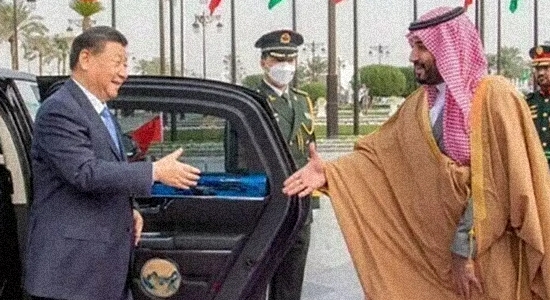
The Shanghai Cooperation Organization was formed in 2001 to coordinate responses to Eurasian border disputes, terrorism and drug smuggling. It initially included Communist China, Russia and some Central Asian republics. Its purpose is stated in its founding charter.
Innocence
Those journalists who are innocent of any reading of the founding charter will write that this is an anti-NATO grouping of states, or a bloc of anti-U.S. alliances. (Associated Press: “Russia and China founded the SCO in 2001 as a counterweight to U.S. alliances across East Asia.”) But the informed reader will note that the charter has no military dimension apart from “security.” There is no alliance language, there are no intervention triggers, and the annual military exercises attract a different assortment of participants each time who produce more PR-oriented military showboating than alliance honing.
Occasionally, someone equally innocent of charter content will write that this is an economic bloc. No, its economic aims are weak, having to do with cooperation, not regional development or trade. This is not the Belt and Road Initiative, nor is it BRICS, nor does the SCO tie in with those.
There is also this diplomatic interpretation: “Most analysts agree that this regional organization is largely a Chinese initiative”—actually, this is a matter of record—“and that China plays a leading role in the SCO process…. China employs the SCO as a vehicle to expand its influence in its immediate neighborhood where it does not have any solid historical and cultural foundation, as opposed to Russia, which long had Central Asia….”
That take is a little old-fashioned given the more recent accession of India, Pakistan, Iran, and Belarus. The list of extra-regional affiliated members is also growing quite long and now includes Saudi Arabia. But the Central Asia aspect does play into China’s desire to control jihadis in general and to dampen any state support for the Uighurs from SCO Muslims.
Of course, a charter is just a piece of paper whose members can treat it as a “living constitution” that permits anything. When Belarus joined the SCO this month, China and Belarus, as if to celebrate, staged joint military maneuvers just three miles from Poland’s borders. Perhaps the journalists arguing that the SCO was an anti-NATO pact were ahead of their time. (By the way, this exercise occurred at roughly the same time that Poland announced its right to shoot down Russian missiles over Ukrainian airspace.)
But maybe not so fast. The SCO stages military drills annually, never ad hoc. View this as one part performative military theatre, one part diplomacy: gunboat diplomacy in Poland’s case, but accidental statecraft enabled by last year’s schedulers. One cannot downplay the military aspects entirely; this particular exercise gave China experience deploying and operating in Europe.
Luck
With diplomacy in mind, we see that these war games come during this year’s SCO annual heads-of-state conference—which was happening during NATO’s Washington conference. The SCO conference dates having been set some time ago, this was not a reaction to NATO’s event, just another lucky juxtaposition.
We are still left with the question of the SCO’s central, current-day mission. Chinese Turkestan is safe from its restless Muslim neighbors; Chinese–Russian border controversies have been adjudicated; little is heard about drug smuggling among SCO states; and disputes between China and India and between India and Pakistan are quiet for the moment.
Heaven hates an idle bureaucracy, so last month, at a different SCO forum, Indian Foreign Minister Subhramanyam Jaishankar called for the SCO to remedy the “credibility and trust deficit in the ability of global institutions to manage challenges in a timely and efficient manner.”
Hello UN! In other words, the SCO should become yet another global institution. This would be a new mission.
What’s very globally institutional also comes from this analysis by an Uzbek scholar: “Most importantly, the meetings of leaders at SCO summits contribute to closer political interaction and coordination, help to better understand each other’s positions and interests, which promotes quality dialogue and strengthens trust.”
Process
“Contribute”—no tangible, attributable outcome. “Help to”—ditto. “Promotes dialog”—always an endless end unto itself. “Strengthens trust”—an ongoing process, since there can never be enough trust. This list of such processes with unmeasurable results informs the income streams of many a global institution.
Meanwhile, the list of interested SCO members grows and grows. The UN itself attends SCO meetings as if to get in on the fun. And, as usual, this year’s SCO meeting produced no meaningful announcements or decisions.
Eventually, the SCO will become what China and company make of it. Until then, it remains a talking shop, with or without annual military exercises. □
James Roth works for a major defense contractor in Virginia.





